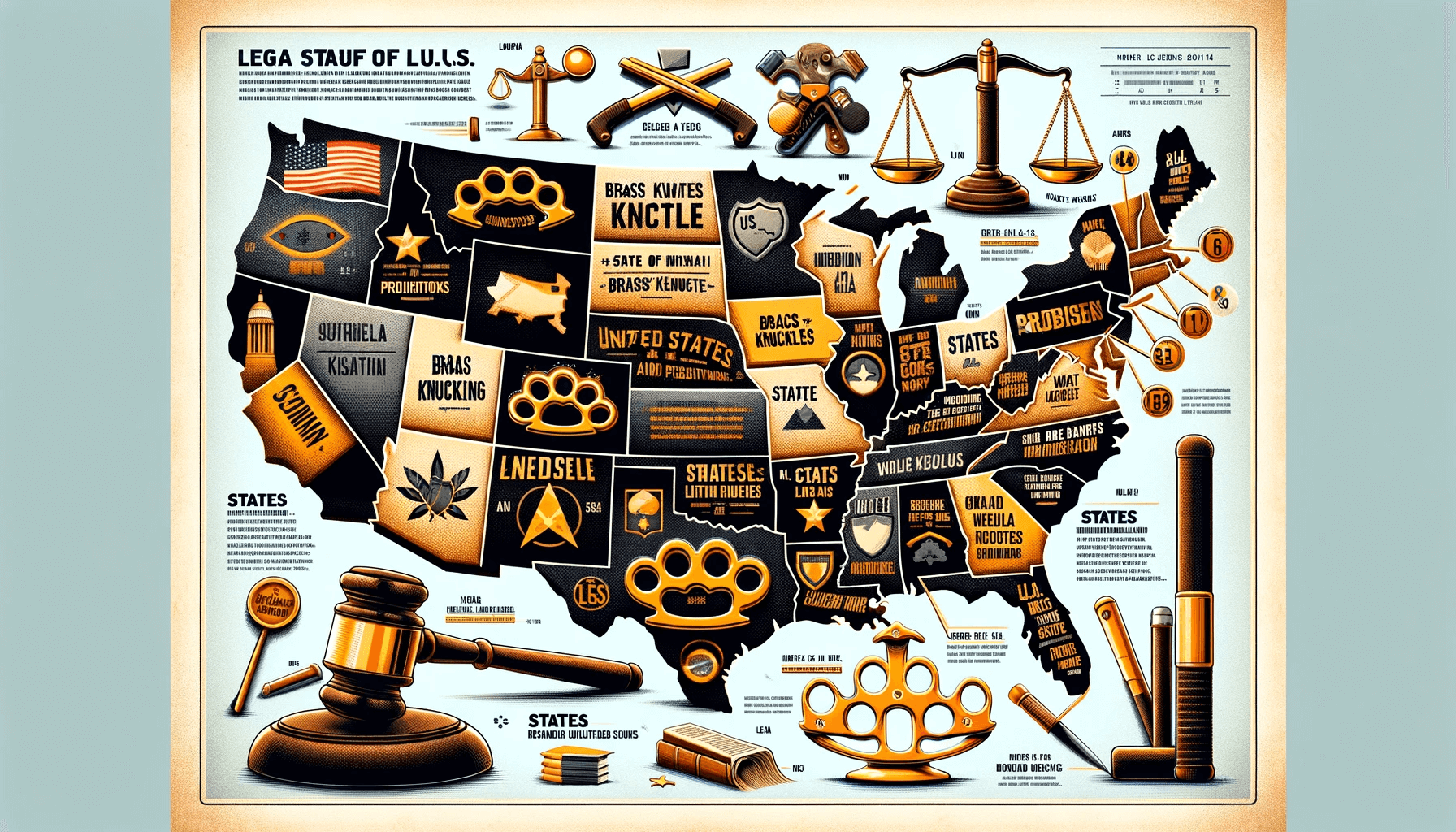In the United States, the legal landscape is often a complex tapestry of federal and state laws, regulations, and judicial interpretations. One intriguing aspect of this landscape is the status of brass knuckles. This article aims to provide a comprehensive analysis of why brass knuckles are illegal in many parts of the U.S., exploring the legal, social, and practical considerations surrounding this issue.
Understanding Brass Knuckles
Brass knuckles, also known as “knuckle dusters” or “knucks,” are a type of weapon designed to be worn over the knuckles. Typically made of metal, they amplify the impact of a punch, potentially causing severe injuries.
Historical Context and Perceived Threat
The legality of brass knuckles can be traced back to their historical use. Originally used by soldiers in hand-to-hand combat, they eventually found their way into civilian life. Over time, law enforcement agencies and legislators perceived them as tools commonly associated with criminal activities, particularly street violence and organized crime. This perception played a significant role in shaping their legal status.
Federal and State Laws
In the U.S., there is no comprehensive federal law banning brass knuckles. However, many states and local jurisdictions have laws specifically prohibiting the possession, manufacture, sale, or use of brass knuckles. These laws vary significantly from one state to another.
States with Strict Prohibitions
Some states, such as California and New York, have stringent laws against brass knuckles. In these states, possession of brass knuckles is often classified as a misdemeanor or felony, depending on the circumstances.
States with More Lenient Regulations
In contrast, states like Texas have recently relaxed their laws, allowing the possession of brass knuckles under certain conditions. This shift reflects a growing debate over self-defense rights and personal liberties.
Legal Justifications for the Ban
Public Safety Concerns
The primary justification for banning brass knuckles is public safety. Law enforcement authorities argue that brass knuckles are inherently dangerous and are often used in criminal assaults. The enhanced harm potential of brass knuckles makes them a public safety concern.
Difficulty in Regulation
Another factor influencing their illegality is the difficulty in regulating their use. Unlike firearms, which have a more structured regulatory framework, brass knuckles are simple, easy to conceal, and challenging to regulate effectively.
Legal Defenses and Exceptions
While most states ban brass knuckles, there are exceptions. Some jurisdictions allow them for specific purposes, such as theatrical performances or historical collections. Additionally, legal defenses such as self-defense may be applicable in certain scenarios, though this is heavily dependent on state laws and the specifics of the case.
The Debate: Public Safety vs. Personal Liberties
The legality of brass knuckles sits at the intersection of public safety concerns and individual rights. Advocates for the right to possess brass knuckles argue that they can be tools for self-defense. Opponents, however, emphasize their potential for misuse and the heightened risk of severe injuries in altercations involving these weapons.
Conclusion
In conclusion, the illegality of brass knuckles in many U.S. jurisdictions is a result of historical context, public safety concerns, and the challenges associated with regulating such weapons. While the debate continues, with some advocating for more relaxed laws and others for stricter enforcement, understanding the nuances of state-specific regulations is crucial. As with any legal issue, the status of brass knuckles in the U.S. reflects a delicate balance between ensuring public safety and upholding individual liberties.









Leave a Reply